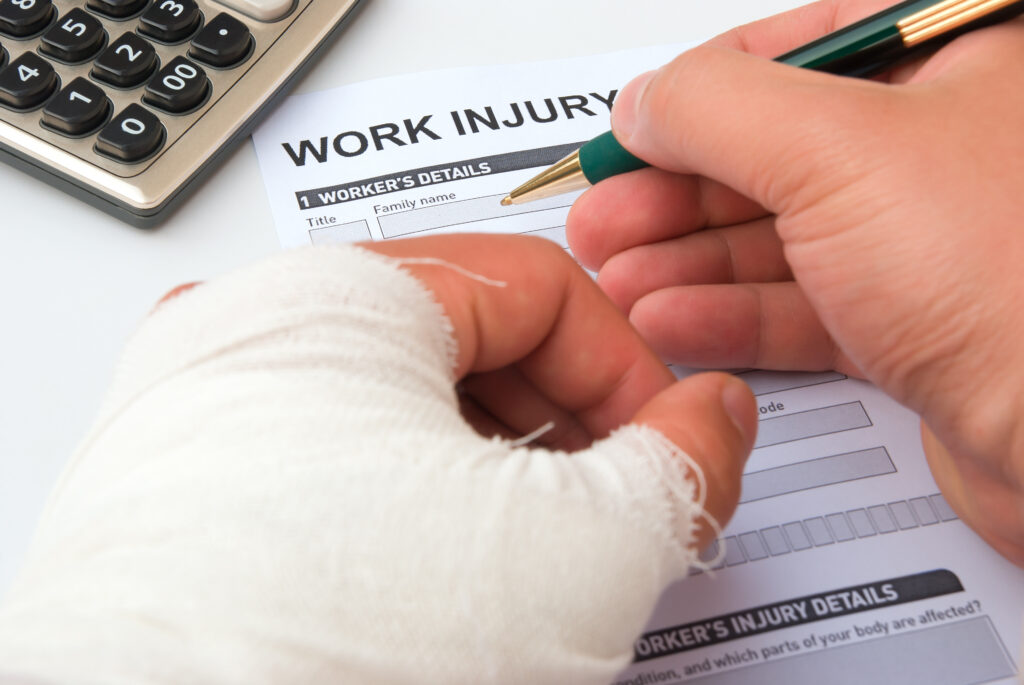Powered industrial trucks (aka forklifts) are very dangerous pieces of equipment and used widely across multiple industries. Forklifts are responsible for literally hundreds of work injuries each year. Serious injuries such as crushed limbs and broken bones are common. Fatalities are also common.
Load Handling Issues Often Lead to Forklift Tip Over Accidents
Forklift accidents often occur due to errors in handling loads. The reality is that loads alter the stability of a forklift, especially when the forklift is in motion. On a busy worksite like a construction site, mishandling the load on a forklift can lead to a tip over accident.
Dynamic forces alter the weight of the load and result in a shift in the center of gravity. Forklifts will be moved and turned, all while lifting and lowering loads. Therefore, these considerations as well as others such as accelerating, braking and tilting, naturally affect stability.
That’s why it is crucial for forklift operators to be trained sufficiently. Operators must exercise caution when handling heavy loads, especially those that are close to the maximum weight limit for the given forklift. For example, if a forklift driver has to handle a maximum load, the load should be carried at the lowest possible position. The truck should not be accelerated too quickly. Failure to exercise caution often results in tip over accidents.
Related: OSHA Forklift Operator Training Requirements
Legal Issues in a Forklift Tip Over Accident Case
Liability or Fault
Liability or fault in a forklift tip over accident case depends on two things: 1. the status of the injured individual, and 2. who was operating the forklift.
The status of the injured individual will determine what types of claims may be made, and determining which entity operated the forklift determines who can be sued.
Status of the Injured Individual – Worker
Under workers’ compensation laws of most states, including Pennsylvania and New Jersey, individuals who are injured in forklift accidents which occur while on the job are usually entitled to make work comp claims and receive benefits for medical treatment and indemnity (lost wages).
Related: Steps in a Pennsylvania Workers’ Compensation Claim
Workers injured in forklift accidents are often surprised to learn that, in addition to any work comp claim, they may have the legal right to file a claim against other, non-employer parties. This even applies to workers driving forklifts.
Status of the Injured Individual – Bystander
In some instances, a bystander may be injured in a forklift accident. For instance, someone walking by a worksite may be struck by a forklift. Earlier this year, a woman walking in a crosswalk in NY was hit by a forklift and suffered major leg injuries. While these instances are rare, they do occur.
Who Operated the Forklift (i.e., Who Is Liable?)
Whether it’s a work related accident involving a forklift driver or an innocent bystander who is hit by a forklift, investigating the entity responsible for operating the forklift will determine who is liable for the accident.
Forklift accident lawsuits are often filed against:
- forklift owners,
- forklift operators,
- forklift maintenance companies, and
- forklift manufacturers.
In addition, depending on where the accident occurred, the owner/operator of the worksite may also be liable for failing to provide a safe work environment. For instance, a general contractor may be liable for failing to provide training to one of its employees who then caused injury to an employee of a subcontractor, or a warehouse operator may be liable for failing to provide designated walkways which resulted in a bystander being struck by a forklift.
Related: Construction Site Owner Liability for a Work Related Accident in Pennsylvania
If you were injured in a forklift tip over accident and would like info about your legal rights, please call our forklift accident lawyers for a free consultation. (215) 399-9255.
Our forklift accident lawyers are licensed in Pennsylvania, New Jersey, Illinois and West Virginia, and also accept matters in other states on a case by case basis. Our lawyers may handle your case by obtaining special admission in your state or may work with local counsel in your area.
DISCLAIMER: This website does not create any attorney-client relationship or provide legal advice. It is crucial to speak to a qualified lawyer prior to making any decision about your case. Read full disclaimer at the bottom of this page.

